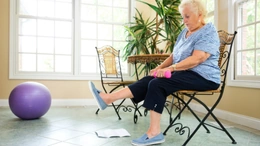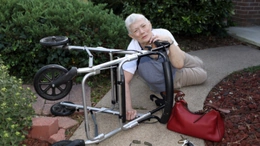Walking Canes For Seniors: A Guide To Choosing The Right Support

As we age, our bodies go through natural changes that can affect balance, strength, and stability. For many seniors, walking canes become an essential tool—not just for mobility, but for confidence and independence. If you're considering a walking cane for yourself or a loved one, this guide will help you understand the different types available and how to choose the one that fits your lifestyle.
Why Walking Canes Matter
Falls are one of the leading causes of injury in seniors. A properly fitted walking cane can:
- Improve stability and balance
- Reduce the risk of falls
- Ease joint pain, especially in the knees or hips
- Support recovery after surgery or injury
But not all canes are created equal. Choosing the right style can make a significant difference.
Types Of Walking Canes For Seniors
- Standard Canes: These are simple, straight canes with a single tip. They're lightweight and great for those who need a little extra support while walking.
- Quad Canes: Featuring four small feet at the base, quad canes provide more stability than standard models. They're ideal for those with greater balance concerns.
- Folding Canes: Perfect for travel or occasional use, folding canes can be collapsed and stored in a bag when not needed.
- Offset Canes: Designed with a curved handle, these canes distribute weight evenly and reduce pressure on the wrist—excellent for those with arthritis.
- Seat Canes: These dual-purpose canes function as both a walking aid and a small seat. They're a good choice for seniors who tire easily and need rest breaks.
Choosing The Right Cane
When selecting a cane, consider:
- Height: The cane should reach the crease of your wrist when your arm is at your side.
- Grip: Ergonomic or padded handles reduce strain on hands and wrists.
- Weight: Lightweight aluminum canes are easy to carry but still strong.
- Tip: Look for rubber tips for better traction, and replace them when worn out.
Getting Professional Help
Before purchasing a cane, it's a good idea to consult a physical therapist or doctor. They can evaluate your gait and recommend a cane that suits your specific needs.
Conclusion
Walking canes for seniors are more than just tools—they're an extension of your independence. Whether you're managing a health condition or simply need more support, the right cane can help you move with greater ease and confidence.






















